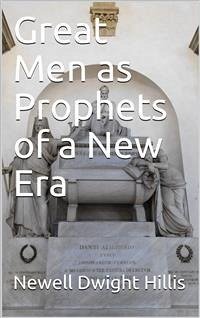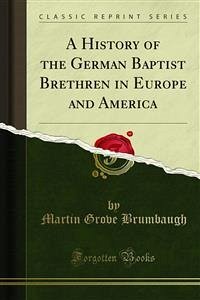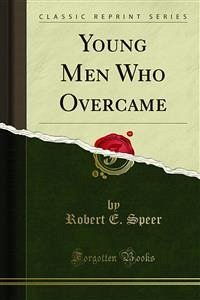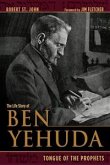Great institutions are the shadows that great men cast across the centuries. A great law, a great liberty, a great art or tool or reform represents a great soul, organized, and made unconsciously immortal for all time. Explorers trace the Nile or Amazon back to the lake in which the river takes its rise. Historians trace institutions back to some hero from whose mind and heart the life-giving movement pours forth. When the scholar travels back to the far-off beginnings of jurisprudence, he comes to some Moses, toiling in Thebes, to some Solon in Athens, to some Justinian in Rome. Not otherwise the renaissance of painting, sculpture, and architecture begins with some Giotto, some Michael Angelo, some Christopher Wren. Scholars often speak of history as narratory or philosophical, but in the last analysis, history is biographical. These studies were prepared for the students of Plymouth Institute in the belief that biography is life's wisest teacher, and that the lives of great men are the most inspiring books to be found in our libraries.
Contents
Dante, and the dawn after the dark ages -- Savonarola, and the renaissance of conscience -- William the Silent, and brave little Holland -- Oliver Cromwell, and the rise of democracy in England -- John Milton, the scholar in politics -- John Wesley, and the moral awakening of the common people -- Garibaldi, the idol of the new Italy -- John Ruskin, and the diffusion of the beautiful.
Contents
Dante, and the dawn after the dark ages -- Savonarola, and the renaissance of conscience -- William the Silent, and brave little Holland -- Oliver Cromwell, and the rise of democracy in England -- John Milton, the scholar in politics -- John Wesley, and the moral awakening of the common people -- Garibaldi, the idol of the new Italy -- John Ruskin, and the diffusion of the beautiful.









